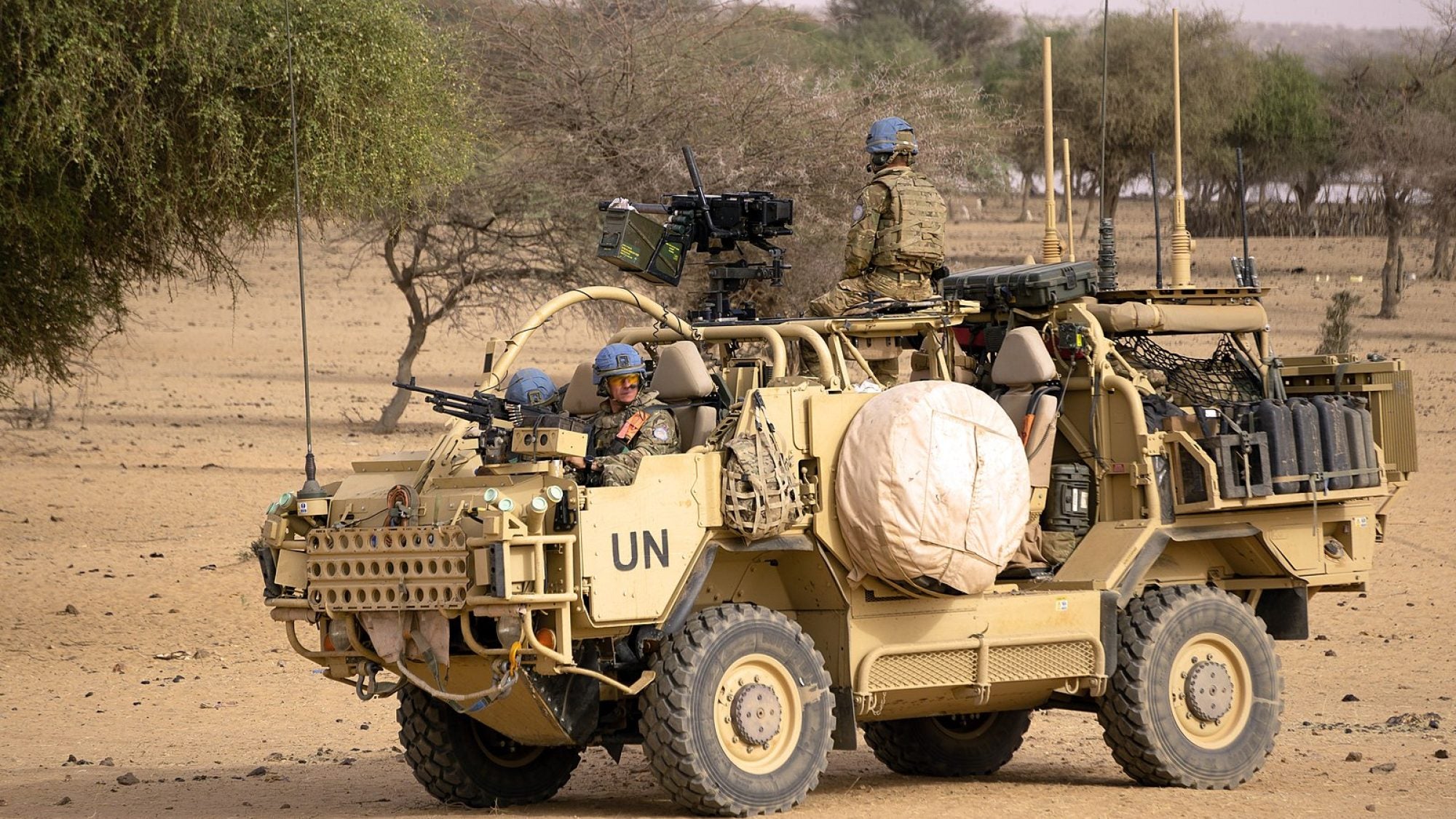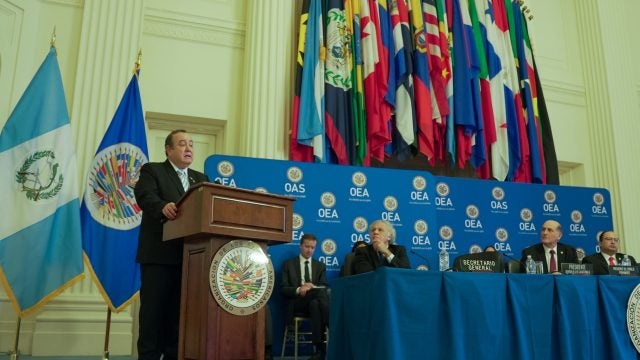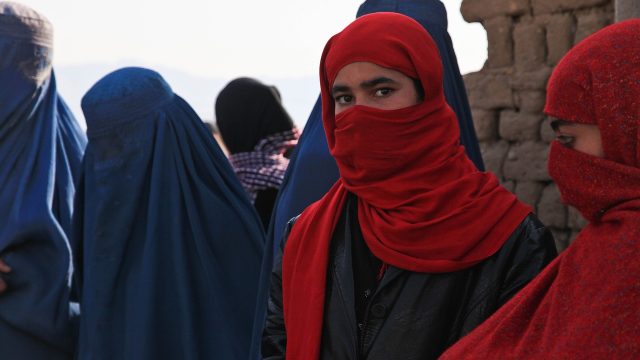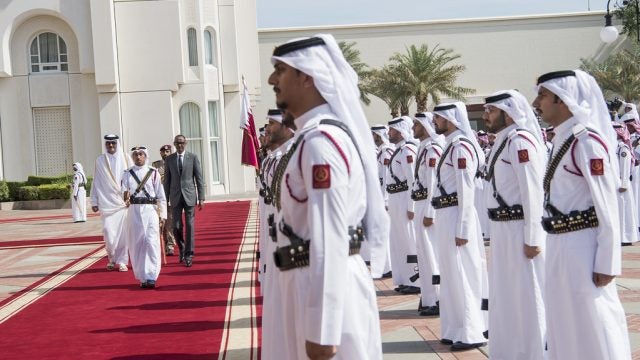
Title: The Mali Puzzle: International Isolation, Anti-French Sentiments, and Withdrawal of UN Peacekeepers
Mali’s surprise withdrawal of consent from the United Nations (UN) peacekeeping mission in June 2023 has introduced a new crisis of insecurity. Its political center remains at threat of attacks from non-state armed groups. The legitimacy and strength of the military-led government also remain under question. One possible path to stability is for the international community to support northern actors who have thus far demonstrated much more success in governance than the coup government.
The Crisis at a Glance
In June 2023, the Government of Mali (GoM) withdrew its consent for the United Nations peacekeeping mission in the country (MINUSMA). By fueling anti-French sentiments and portraying the UN peacekeepers as a French postcolonial force, Mali’s increasing international isolation seems to be a strategic move to gain domestic support. The leadership of MINUSMA has no direct connection to France; its leadership is represented by individuals from Scandinavian and African countries, as well as the United Kingdom. In fact, back in 2013, the Malian government had invited the peacekeepers themselves. The anti-French narrative thus appears to be a deceptive tool to foster discontent against the peacekeepers. As the last peacekeepers depart and hand over their bases, the government’s ability to establish security in the region remains unclear.
Figure 1: Timeline of major events in Mali
Coups and Ethnic Conflict
While unexpected for many observers, the origin of the conflict dates back to 2012 when the Tuareg ethnic group, seeking autonomy, initiated a rebellion in the north. A year later, insurgents from the group nearly overthrew the government in Bamako, prompting a military coup. The new government then requested assistance from France and asked for a UN peacekeeping mission; in response, the French initiated a counter-insurgency operation (Operation Serval, later Operation Barkhane) aimed at combating terrorist groups across the Sahel zone. Ever since then, the security and political situation in the country has only worsened, as shown in the rise in violence below.
Figure 2: Violent incidents in Mali from 2013-2023. Source: Armed Conflict and Location Dataset (ACLED)
Intercommunal violence between other ethnic communities and a series of follow up coups have further destabilized the central part of the country. The Fulani nomadic herders and the Dogon settled farmers have been in conflict over land rights, water access, and farming areas. In 2020, these insecurities fueled a military coup, which Malians celebrated as a liberation from a corrupt government. However, a second coup nine months later by the same group of military officers consolidated the power of General Assimi Goïta, who then halted all democratization efforts. The international community responded to the junta’s two coups by imposing sanctions, temporarily excluding Mali from organizations like the African Union and ECOWAS, and hesitating to support the military regime in security matters. In August 2022, for example, France stopped all military cooperation and French troops left Mali. Unfortunately, coups and ethnic conflict are only part of Mali’s struggle toward peace and stability.
The Armed Groups-Military Dilemma
Mali’s political center is under severe and escalating stress from non-state armed groups. As the map below shows (Figure 3), most of these incidents are driven by violent extremist groups at the center of the country, and not by groups from the north. Each year, the violent events have shifted more southwards, encroaching upon the capital, Bamako, demonstrating the military regime’s inability to enhance security.
Figure 3: Geographical distribution of political violence 2018-2022. Source: ACLED. Black dots represent violent incidents, the red diamond locates the capital Bamako
Considering the escalating violence and the growing proximity of various armed groups to Bamako, the government’s ability to maintain power after the peacekeepers depart raises significant concerns. Mali’s military is weak and will likely be unable to assert effective control, with an estimated troop strength of just over 30,000 (though the exact number remains unclear).
Desperate for support, the GoM has turned to Russia’s Wagner forces. However, this may have been a miscalculation. Russia has its own interests and may not be a sustainable partner—at the time of this turn, the Wagner group had already relocated troops and equipment from several African countries to Ukraine.
The involvement of these Wagner forces has also brought an entirely new set of problems and humanitarian concerns. For example, in March 2022, Malian security forces, accompanied by Wagner mercenaries, attacked the Moura village, killing over 300 civilians. While the GoM’s official narrative portrayed the victims as terrorists, reports from the UN Human Rights Office and independent organizations like Human Rights Watch provide evidence that they were innocent civilians.
Challenges and Opportunities
The Malian government faces a serious challenge. Although the blame for the worsening security situation has been put on the peacekeepers and used as an argument for their departure, the government’s weak military has so far relied on them to prevent rebel groups from taking control of Bamako. As peacekeepers depart, the situation raises a pressing question surrounding security and peace in the region and the GOM’s ability to do so.
The international community thus faces a choice: whether to abandon Mali entirely, given the difficulties in working with the current military government, or to strengthen northern groups, potentially leading to their increased influence or even an autonomous region similar to Somaliland.
Pre-existing governance structures in the north provide a possible outlet to stay engaged. Although many actors initially desired secession, in 2015, various Tuareg factions became signatory armed groups (SAGs) of a peace agreement, gaining legitimacy and a role in cooperation with the UN and regional organizations. The SAGs upheld their responsibility and, compared to the central part of the country, kept the north relatively stable. The two primary coalitions among the SAGs are the Coordination des Mouvements de l’Azawad (CMA) and the Platforme.
The CMA comprises of mainly Tuareg rebel groups, such as the National Movement for the Liberation of Azawad (MNLA) and other smaller factions, fighting for greater autonomy or independence in the northern Mali region known as Azawad. The Platforme, on the other hand, is a coalition of pro-government armed groups consisting of various militias from northern and central Mali. In April 2021, a faction of the Platforme and the CMA jointly established the Cadre stratégique permanent. Working together, the Cadre solidified its role as a legitimate political and security entity in the northern regions by taking up semi-official diplomatic relations with Algeria, Niger, and several European countries.
If Bamako falls due to continued violence escalation, it may be preferable for the country to come under the control of actors like the SAGs or the Cadre, who are concerned about internal and external legitimacy and who prioritize the security of their people. However, leaving northern groups to govern the entire country may not be conducive to overall peace and stability. After the GoM violated the peace agreement by militarily entering northern territories and detaining members of the SAGs, these groups withdrew from the new constitutional process, renounced the peace agreement, and suspended all other political negotiations with the GoM. Thus, the empowerment of these groups must consider both GoM concerns about the northern factions’ growing strength and the SAG members’ skepticism of political negotiations.
Moving Forward
The consequences of Mali falling into the hands of extremists would be dire, given its status as one of the largest countries in West Africa and the international community needs to step up. One potential approach to building peace would be to focus on securing the northern region, home to the Tuareg movement. The north could either be fully independent or have a self-declared autonomous status akin to Somaliland. Although without full independence for the north, diplomatic and security cooperation may be challenging, the international community has the potential to bolster long-term regional security and stability by empowering these northern groups. They could offer this support through a variety of means such as via training and equipment. A two-state solution for Mali, with a division between northern Mali and central/southern Mali, could also be reconsidered. However, this approach must be pursued to not further provoke the central government.
At the end of the day, the debate over potential solutions underscores the complexity of uniting diverse ethnic groups within a single country. Successful unity relies on ensuring that no group experiences political disenfranchisement and that the central government possesses the necessary authority to guarantee security. Unfortunately, as of now, the Malian system meets neither of these conditions.
…
Research for this project was carried out with funding from the European Research Council (ERC) under the European Union’s Horizon 2020 research and innovation programme (grant agreement n° 852816).
Dr. Melanie Sauter is a researcher at the University of Oslo. She worked for the United Nations Multidimensional Integrated Stabilization Mission (MINUSMA) based in Bamako.
Image Credit: Wikimedia Commons
Recommended Articles

For many in the Global South, the ‘American Peace’ or Pax Americana is a mirage amid a world of war, economic hardship, forced migration, environmental calamity, and political repression while…

The United Nations is scheduled to host its third meeting of international envoys to Afghanistan in Doha on June 30, 2024. This meeting aims to discuss and address significant…

Qatar plays a crucial role in mediating conflicts in the Middle East region. Its engagement in negotiations with diverse stakeholders–including countries like Lebanon, Sudan, and Libya and non-state actors such…


